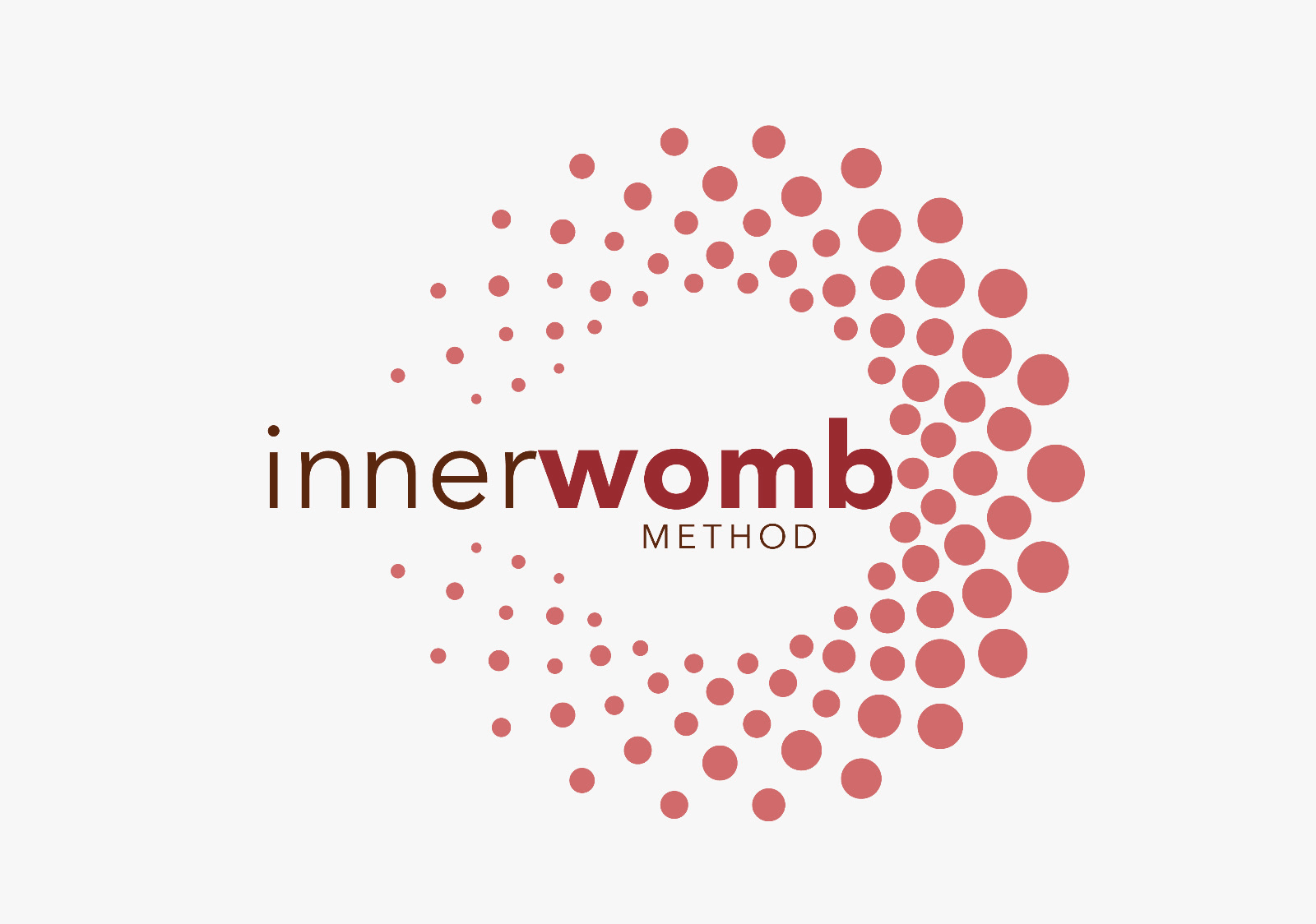Signs of Womb Trauma: Recognizing the Impact on Feminine Energy, Emotions and Health

Womb trauma refers to the emotional and physical scars that can arise from experiences during pregnancy and birth, as well as ancestral trauma. These unresolved issues can significantly impact a woman's health and overall well-being. Understanding the signs of womb trauma is essential for identifying its effects on both physical and emotional levels. Common symptoms may include menstrual irregularities, infertility challenges, and emotional struggles such as anxiety and depression.
Understanding Womb Trauma

Womb trauma is a complex issue that encompasses emotional and psychological impacts due to experiences in the womb and beyond. This section delves into the definitions and ramifications of womb trauma.
What is Womb Trauma?
Womb trauma refers to the emotional and physical scars that can develop during significant life events, particularly during the prenatal period. It includes experiences that influence a person's psychological state from conception onward. These traumas are often deeply embedded in the psyche and can manifest in various forms throughout a woman's life.
How Trauma Can Affect Women
Understanding how trauma affects women is crucial for recognizing the signs and seeking appropriate healing. The impact of womb trauma can be profound, leading to a variety of health issues. Some key points regarding its effects include:
- Physical Symptoms: Many women report gynecological problems, digestive issues, and chronic pain linked to unresolved trauma.
- Emotional Well-being: A woman’s mental health can be significantly impacted, resulting in conditions such as anxiety, depression, and mood disorders.
- Reproductive Health: Womb trauma can contribute to difficulties with fertility and complications during pregnancy, reflecting a deep-seated emotional disturbance.
- Self-Perception: Women may struggle with feelings of inadequacy, leading to distorted body image and challenges in intimate relationships.
Womb trauma not only affects individuals but can also resonate through generations. Understanding its roots and implications supports deeper healing and allows for a more comprehensive approach to women's health. Recognizing how these experiences shape perceptions and relationships with one's body is foundational to addressing womb trauma effectively. This holistic view, which sees the interconnectedness of all aspects of our being, is vital as we explore the womb healing essentials signs and symptoms that guide us towards tailored healing paths.
Identifying Signs and Symptoms
Recognizing signs and symptoms is essential for understanding the effects of stored trauma within the womb. Various physical and emotional manifestations can indicate the presence of womb trauma.
Common Physical Symptoms
Menstrual Irregularities
Women experiencing womb trauma frequently encounter dysfunction in their menstrual cycles. This can present as:
- Heavy bleeding (menorrhagia)
- Excessive pain during menstruation (dysmenorrhea)
- Irregular cycles that vary significantly in length and flow
These irregularities often signal deeper emotional issues that require further exploration rather than mere pharmaceutical interventions. Addressing the underlying emotional pain is crucial for restoring menstrual health.
Infertility Challenges
Unresolved womb trauma may also manifest in difficulties related to fertility. Common issues include:
- Struggles to conceive despite trying
- Recurrent miscarriages without clear medical explanation
- Emotional distress surrounding pregnancy and conception
These challenges can stem from the body’s response to past trauma, making it vital to create a supportive environment for conception and pregnancy. Addressing the underlying emotional pain, the stored tension, or the energetic blockages within the womb and pelvic bowl through practices such as womb-focused meditation, specific somatic releases, or even engaging with the wisdom of the womb chakra, is often crucial for restoring true menstrual health and harmony.
Emotional and Psychological Effects
Anxiety and Depression
Many women with womb trauma grapple with emotional disturbances such as:
- Persistent feelings of anxiety in everyday situations
- Depressive moods and emotional flatness
- Frequent mood swings and irritability
This emotional pain often stems from a feeling of disconnection from one’s body, leading to a compromised sense of self-worth.
Impact on Sexual Relationships
A woman's ability to connect intimately may also suffer due to unresolved trauma. Signs include:
- Difficulty establishing healthy, trusting sexual relationships
- Fears and anxieties surrounding intimacy
- Feelings of inadequacy or shame regarding one's sexuality
This can perpetuate unhealthy relational dynamics, further complicating the emotional landscape resulting from womb trauma. This deep emotional pain, we believe, often stems from a fundamental feeling of disconnection – a disconnection from our own bodies, from our innate worth, from our intuitive guidance, and from a sense of safety and belonging in the world. This can lead to a significantly compromised sense of self-worth and a feeling of being adrift. Exploring pathways towards emotional womb healing is key to soothing these turbulent inner waters.
Origins and Causes of Womb Trauma
The origins of womb trauma are complex and multifaceted. They can stem from maternal experiences during pregnancy and extend to generational trauma that influences a woman's emotional and physical well-being. Understanding these causes is fundamental for healing and recovery.
Trauma From Maternal Experience
Womb trauma can often begin with the mother’s own experiences. The emotional and physical health of a mother can substantially impact her developing child.
The Mother’s Womb Experience
A mother's emotional state during pregnancy plays a pivotal role in shaping the experiences of the fetus. High levels of stress, anxiety, or unresolved trauma can create an adverse environment for the developing baby. This environment influences not only the child's physical health but also their emotional and psychological state, potentially leading to long-term effects.
Impact on the Developing Fetus
The implications of maternal trauma are profound. A fetus exposed to significant maternal distress may develop a heightened stress response. This can set the stage for various health issues, including emotional difficulties, behavioral problems, and even physical conditions. The connection between maternal health and fetal development underscores the importance of supporting expectant mothers emotionally and psychologically.
Generational and Ancestral Trauma
Another layer to womb trauma involves the experiences of previous generations. The effects of trauma can transcend individual experiences, impacting descendants long before they are born.
Transgenerational Impacts
Research supports the notion that trauma can be passed down through generations. Family histories marked by violence, loss, or emotional turmoil can create inherited patterns of stress and maladaptive coping mechanisms. These patterns can shape how descendants experience relationships and perceive their own selves, often leading to feelings of inadequacy or emotional distress.
The Role of Stress
Stress from previous generations affects the biological and emotional landscape of new life. For instance, increased cortisol levels associated with maternal trauma can influence the developing nervous system of a fetus. This can impair resilience and emotional regulation in later life. The lingering effects of ancestral trauma highlight the need for awareness and healing at both individual and collective levels.
Scientific Insights
Research into womb trauma provides valuable insights into its lasting effects on women's health. Studies have highlighted the intricate connection between maternal experiences and their impact on offspring, particularly regarding mental health.
Studies on Maternal Trauma
Numerous studies have examined the effects of maternal trauma on children's health. For instance, research indicates that children born to mothers who experienced significant stress during pregnancy often face increased risks of developing various psychological conditions. Key findings from these studies include:
- Children of Holocaust survivors exhibit heightened vulnerability to anxiety disorders and post-traumatic stress disorder.
- Studies have shown that maternal depression and anxiety during pregnancy correlate with behavioral issues in children, including attention-deficit/hyperactivity disorder (ADHD).
- Research emphasizes that adverse experiences in utero may lead to long-term developmental delays and emotional difficulties.
Effects on the Nervous System
Maternal trauma has profound implications for the developing nervous system of the fetus. Key factors observed include:
- The release of stress hormones, such as cortisol, can cross the placental barrier and affect fetal growth and development.
- High levels of prenatal stress are linked to alterations in brain structure and function, potentially leading to lifelong consequences.
- Studies indicate that the experience of trauma may inhibit the developing child’s ability to manage stress effectively, leading to increased susceptibility to mental health issues.
Understanding the scientific aspects of womb trauma is essential for developing effective therapeutic strategies. Continued research in this area sheds light on the mechanisms by which trauma influences women's health and underscores the importance of addressing these issues for holistic healing.
Healing and Support Strategies
Effective healing from womb trauma involves a combination of therapeutic practices and self-care strategies. These approaches address both the emotional and physical aspects of trauma, promoting overall well-being.
Addressing Unresolved Trauma
Trauma-Aware Therapies
Trauma-aware therapies focus on recognizing and integrating the effects of trauma into daily life. Practitioners utilize various modalities to create a safe and supportive environment for healing. These therapies may include:
- Somatic experiencing, which emphasizes the connection between body awareness and emotional healing.
- Psychotherapy that targets the root causes of emotional pain, allowing for in-depth processing of experiences.
- Art and music therapy, which provides creative outlets for expression and helps in processing difficult emotions.
Physical and Emotional Healing
Physical and emotional healing requires holistic approaches that consider the body and mind. Methods such as:
- Bodywork, including massage therapy and acupuncture, can release stored tension and trauma.
- Support groups to foster connection among women with shared experiences can enhance feelings of community and understanding.
- Yoga and breathwork are useful for cultivating mindfulness and reconnecting with the body.
Lifestyle and Self-Care Practices
Holistic Health Approaches
Adopting holistic health practices can promote a sense of balance and well-being in daily life. Key strategies include:
- Incorporating a balanced diet rich in nutrients to support both mental and physical health.
- Regular physical activity, which can alleviate stress and improve mood.
- Natural remedies, such as herbal supplements, may provide additional support for emotional stability.
Mindfulness and Stress Reduction
Practicing mindfulness and stress-reduction techniques can greatly enhance emotional resilience. Strategies to consider are:
- Meditation, which encourages presence and awareness, helping to calm the mind.
- Journaling to process thoughts and feelings, providing an outlet for self-reflection.
- Engaging in gentle breathing exercises to manage stress and promote relaxation.
Frequently Asked Questions
Understanding the nuances of womb trauma and its effects on women's health raises several important questions. Here, common inquiries are addressed to provide more clarity on this intricate topic.
How Can Trauma Impact a Woman's Life?
Trauma experienced in the womb can have far-reaching consequences that may not be immediately apparent. Women may encounter various challenges, both physically and emotionally, stemming from unresolved womb trauma. Some key impacts include:
- Physical Health Issues: Hormonal imbalances, menstrual irregularities, and chronic pain can emerge, affecting overall health and daily functioning.
- Emotional and Psychological Struggles: Many women report experiencing anxiety, depression, or heightened stress levels as a direct consequence of trauma. These emotional responses can affect self-esteem and personal relationships.
- Relationship Difficulties: Traumatic experiences may hinder the ability to form healthy attachments, contributing to unsafe or dysfunctional relationships. Fear of intimacy or vulnerability can arise, complicating interpersonal dynamics.
- Challenges in Parenthood: Those who experience womb trauma might face difficulties in conceiving or carrying a pregnancy to term, often linked to emotional and physical stressors.
What Are Effective Healing Methods?
Addressing womb trauma requires a multifaceted approach that encompasses both emotional and physical healing. Several methods offer support to individuals on their healing journey:
- Trauma-Aware Therapies: Engaging in therapies specifically designed to address trauma can provide relief. These might include psychotherapy, counseling, or bodywork methods that focus on emotional release and personal empowerment.
- Physical and Emotional Healing: Combining various healing modalities such as energy work, mindfulness practices, and physical therapies can facilitate profound recovery. These approaches can help in releasing stored emotions tied to trauma.
- Lifestyle and Self-Care Practices: Adopting healthful lifestyle changes, including a balanced diet, regular exercise, and stress-reduction techniques, plays a pivotal role in healing. Self-care practices help foster a deeper connection with one's body.
- Holistic Health Approaches: Integrating holistic methods, which consider the mind-body connection, can enhance recovery. This might involve yoga, meditation, or other mindful practices that foster emotional well-being.
